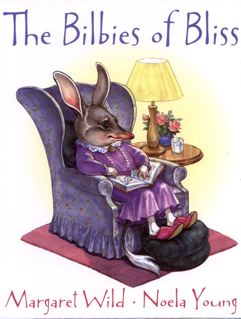The author quotes Shakespeare, "One touch of nature makes the whole world kin." He mentions that in the West we are culturally conditioned to worship God in temples, chapels and synagogues which erects barriers between the different religious groups. In a multi cultural society we may share the same schools, libraries, supermarkets and sports stadiums but attend different places of worship. " In a garden, however, we all worship at the same shrine, whatever our colour or creed. The sun and the wind and the rain are not the possessions of any particular sect. They belong to us all. They are part of our shared heritage"
"We are over-stimulated, and yet we suffer from sensory deprivation because we have exchanged quantity for quality. Science encourages us to take a wholly rational view of the world, to approach it with our intellect rather than to experience it first hand through our five senses. We expect to learn the truth from books and films rather than by a process of personal discovery. As a result our sensory perceptions are failing and we are losing faith in our own powers of observation."
The part about the sensual garden was entertaining. He mentions that the Puritans regarded gardens as sinful places because of the temptations they evoked. The author encourages "sensual arousal" in the garden as long as it is "between consenting adults, and doesn't alarm the neighbours, damage the daisies or frighten the horses". And I might add "freak out the children". :-)
Norfolk mentions that people in Western countries spend 85-90% of their time indoors and says we have become a new species - Homo encapsularis. He talks about Sick Building Syndrome and mentions that medical reports have shone that children living in centrally heated homes have 50% more hay fever and asthma than those living in homes warmed by open fires.
Henry David Thoreau wrote that we must go out and "re-ally ourselves to Nature every day". 'I am sensible that I am imbibing health when I open my mouth to the wind. Staying in the house breeds a sort of insanity.'
"Take a stroll in the great outdoors. That's what Australian Aborigines do when they feel oppressed by the demands and pressures of modern life. Instead of staying put and enduring the ceaseless stress of city life they pack their bags and go walkabout in the bush, thereby recapturing the freedom enjoyed by their nomadic ancestors" And as the philosopher Kierkegaard says, 'every day I walk myself into a state of well-being and walk away from every illness. I have walked myself into my best thoughts, and I know of no thought so burdensome that one cannot walk away from it.'
Now this part I think I have right. He recommends sleeping when tired, eating when hungry, getting rid of the clock and working with nature's rhythms. Work when we are energetic and rest when we are tired. I like this guy! My unschooling philosophy is validated! He also recommends throwing garden parties to celebrate the seasons which I am happy to report that our playgroup already does!
He suggests that as we interact more closely with nature we find subtle changes occur in our behavior towards others. We become calmer, more tolerant and more patient. I think I can attest to that with our experience living in the city.
He suggests planting astroturf if you're wanting a flawless green carpet. Many cultures intentionally leave a flaw in their work believing that perfection can only be found in the work of God. Jews and Muslims make a practice of building imperfections into their synogogues and mosques by omitting a brick or patch of wood unpainted. I have heard that Native Americans leave a flaw in their weavings. I love the dandelions in our yard even if it horrifies my family. :-)
Saving the best for last the author recommends becoming an eco-worker instead of an eco-warrior. We have it within our power to create a greener, more beautiful world. Ecology, like charity, should begin at home. We all have the ability to create our own little haven and improve the world a bit at a time. " ...our individual efforts would merge together until we had created first a more beautiful town, then a more beautiful country and finally a more beautiful world." 5 star book!







